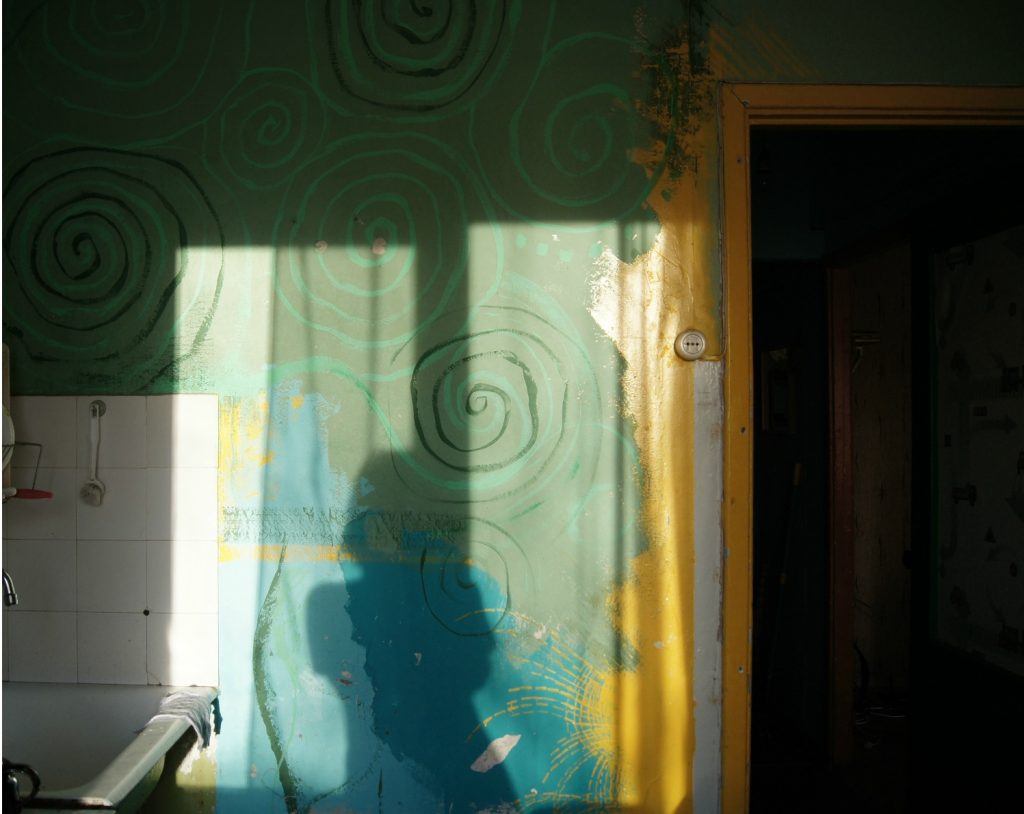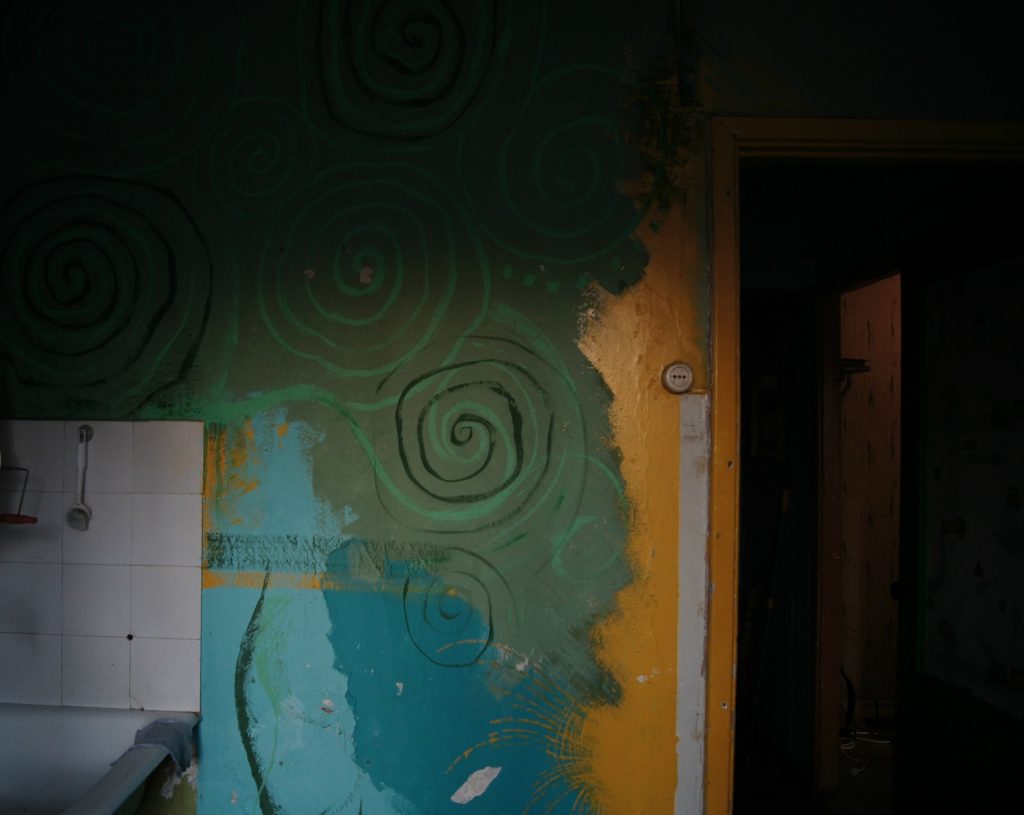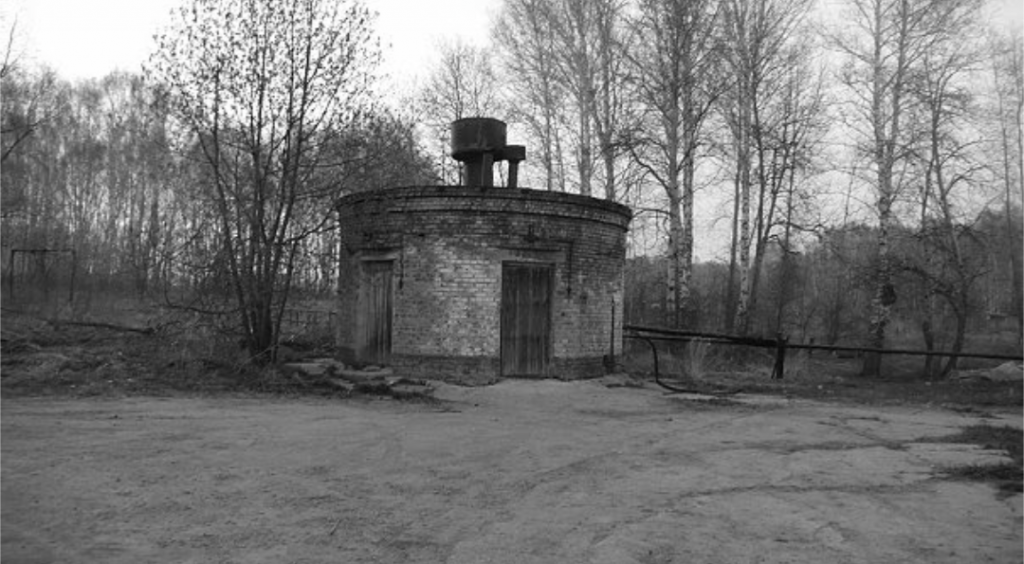Neseine Toholya is an artist-researcher in an interdependent relationship with the world. Practices decolonial queer, produces text and other artistic products. Born from the spirit of the era, she graduated from the Pedagogical College in Salekhard, the Smolny Institute for Noble Maidens and the European University, currently a Fellow at the IASS Potsdam. Composes art of varying severity, is in search of meaning, and stands for goodness and justice. Likes Sailor Moon and other Japanese cartoons.
Martha Dashiin is a decolonial researcher interested in the history of Soviet media. She was born in Siberia but has been living in the USA since recently. After coming to the USA, she began to research the problem of emigration as a loss or gain of space.
The third interview of Neseine Toholya is with a decolonial researcher under the alias Martha Dashiin. In this conversation, the feeling of Home is encapsulated in particular objects through which reminiscences of self in specific spaces and times are manifested.
Neseine Toholya: Today, we are in conversation with Martha Dashiin. Please, introduce yourself.
Martha Dashiin: I’m a postgraduate student at the University of Virginia. I have an Instagram blog about all sorts of decolonial resistance and the history of Siberia. I also have a decolonial reading group on telegram.
Neseine Toholya: I met Marta after she posted an appeal to the indigenous peoples on Instagram, saying: “let’s decolonize”. And I thought: Let’s! We texted, phoned, and then met in person when I was in the US.
I thought it would be interesting to talk to you about the feeling of Home. From our discussion in the US, it seems to me that you have a very interesting position, and I became curious, how do you define Home at the moment?
Martha Dashiin: I seldom felt at home anywhere. When I lived in Novosibirsk, the only safe place was that one apartment where I lived with my parents. A specific, very small space and everything around was usually very hostile towards me. Therefore, for me, there’s only a Home in its physical manifestation in the apartment where I grew up. I have no understanding of a Home as a country, region, or place.
I always had some issues, especially in childhood — for example, I’m sitting at our apartment doing something, and suddenly the thought comes to my mind: I want to go home. And I’m literally at home. There is a forum on Reddit called ‘glitch in the matrix’. People discuss all sorts of strange occurrences that they consider evidence of us already living in the matrix. Someone posted there that they also had this in childhood, they were at home playing, and suddenly the thought “I want to go home” suddenly comes into their head. This happens to some people.
Neseine Toholya: I think I also had such a feeling in my childhood. Although I had a home, I always felt that the space of my village was very hostile, and so it was like the whole world was set against me. This was also because I had problems at school, where I was bullied very badly, and I was also subjected to violence at home. Thinking about it now, I understand that this is a rather unbearable situation for any person when everything aligns against you. Not even the house you live in is safe, and there’s nowhere to go to feel ok. Plus, things were aggravated by how hierarchical and racist relations arrangements in our village were. Not to say that it was a leading motive that made things unbearable, but it was an essential addition that certainly did not make life easier and space more welcoming. The only place I could feel more or less at Home was my room — but still, not always — I only got my own room when I was ten years old. Even though my dad is a severe abuser, he allowed me to do anything in this room. It was a space for me: I could draw on the walls, rearrange furniture, repaint everything, and do it at my discretion. This was a tiny island of freedom.


Martha Dashiin: I also had my own room. We had a three-room apartment, and we still do. It was considered my room, but, in fact, my parents’ things were also there, and I could not keep the door shut. But generally, I felt safe in this apartment. The only thing is that I have a significant age difference with my parents, and generational conflicts began early on because they did not always understand that time was moving forward. Many things they used to consider normal were outdated or ceased to be the norm, etc. This affected how comfortable I felt at home, but still, I would not call my parents abusers. All the same, the home was safer than school or the streets.
In decolonial studies, there is a lot of debate on how time and space are related to each other. When discussing the space of history, you should always talk about time. Do you have an understanding of Home in this sense? In such a space-time continuum one?
Neseine Toholya: Could you share an example?
Martha Dashiin: Well, for instance, my concept of a home is very connected to a specific time. Home for me is my apartment, not in the sense of how it is now, but as it was in the 90-s and 2000-s. This apartment hasn’t been a Home since 2014, and I don’t even know why.
I really love nostalgic things. I like listening to old music, looking at old photos, and remembering and analyzing old situations. I remember good things because all bad is forgotten very quickly, at least for me. And while recalling those things, I noticed that for me, Home is my apartment in 2001. This is absolutely the Home. But the same apartment in 2015 is not Home at all.
Neseine Toholya: You still lived there in 2015, but it no longer was your Home?
Martha Dashiin: I still lived there, but I was at a different age, I was twenty-three, and I wanted to leave, which I did pretty soon.
Neseine Toholya: By the way people tell me about the feeling of Home, I notice that more often, this feeling is associated with a particular time, and if some conditions of this time are not met, the place loses the sense of homeliness, safeness. I might say this applies to me as well: I no longer feel at home when visiting my parents’ house (although my room remains there). I understand that the room is with me temporarily, the familiar objects are there, but they don’t seem to be about me anymore. Over time, there are less and less of them. Sometimes I begin to quickly throw everything away, get rid of the past.
I also recently realized something about this house. If you observe how my mom and dad relate to the space, you can notice that my dad tends to gradually take it over. First, he will bring one of his things to some room, then another… So little by little, this room is filled with his things and becomes his space, and he goes on to the next one, then the next one. And over time, all the areas in the house become filled with him, his objects, his smell. You realize you have nowhere to squeeze yourself in — you must carve out space for yourself or go into conflict to win it back. Since I don’t live there, I come as often as twice a year and feel like a guest there. Although the house seems to be the same, I am not, and so isn’t the time.
Martha Dashiin: Last time I visited my parents was in 2019. Well, yes, I did not feel at Home, mainly because when being in russia in general since 2014, I feel even less safe than before. Even the inside of the apartment does not work anymore. And now, probably even more so. It’s interesting what you said about your room, that you feel like it’s not about you anymore, your old things are not about you. Because it’s precisely the opposite for me. I love to collect and keep old things, and the older they are, the more affection I have for them. I still keep the old turtleneck I wore in the tenth grade and carry it with me all around the world. I have even older things, like a notebook from 2004.
This is a rarity. I don’t have many such things — very old ones — but they are with me. And I always remember — if you come to my room and point your finger at a random item, even a pen or pencil, I can tell you exactly when I bought it and in what circumstances. I live in the US, and especially since the war, it became unclear when I would be able to visit russia, so some things related to the past became even dearer to me. I recall myself in that time and think about what I was like back then and how I am different now, and this makes me feel good. For example, there used to be those ballpoint pens. Very cheap plastic pens made in China. They had blue paste, not very visible, and they also had this powerful smell. For some reason, their paste smells of something sweet, but it’s not specially flavored. I have one such pen here with me now. I don’t use it — I just open it from time to time and take a sniff. When I was twelve years old, we had a shop next to my school, and I lost pens all the time, and then bought these cheap pens there, one ruble per pen. When I smell them, I reminisce not about the school but about myself at this time. And do you reminisce about yourself?
Neseine Toholya: I am currently doing a project that is related to my street, and at some point, I started to look at old photographs of my village and try to recognize places in them. I found out that I don’t remember, for example, a particular house or place, but still, my memory is attempting to reconstruct the connections: who might have lived here, and what happened in this location? This process pulls me powerfully into such a whirlpool. Old things are really capable of recalling a lot. You talked about pens, and I have a childhood story about this pen. We had a teacher in elementary school who was a bit like Stalin, our dictator. She forced us to buy certain picture notebooks, certain pens — these ones. And my memory of these pens is connected with her, I immediately see her face. I remember how depressing this was — a bit like living under a dictatorship…

Martha Dashiin: For some reason, all my memories are tied around me. I always remember myself, and if others, then in conjunction with myself. In the US, there is a meme: the main character. This is me in all my memories — I’m the main character. On the other hand, these are my things, so probably they should remind me of myself.
Neseine Toholya: Regarding these pens, when I remember myself, I remember that I liked the smell. I loved using them and the way they traced the paper. It would be cool to have one of these pens to write with now too. As a writer, I sometimes need to have some kind of incentive to start writing. Such a pen would help me. I used it to write essays up to six or ten pages long about Sailor Moon and other things.
Read also:

I might still be in shock because I was never going to leave
The second conversation with Neseine Toholya: with Itintike, an artist and researcher from Yakutia

I’m sorry you can’t find your cream
The second conversation with Neseine Toholya: artist and activist ~several talks about the class aspect of migration and the experience of losing privileges.
Martha Dashiin: Did they assign you to write about Sailor Moon?
Neseine Toholya: Sometimes, we chose the topic of an essay ourselves, and of course, I wrote about everything I found interesting. At that time, I was into Sailor Moon. I invented new adventures — imagine my teacher reading this six-page nonsense.
Martha Dashiin: Well, did she give you good grades?
Neseine Toholya: I always had top scores because my writing was grammatically correct. I read a lot, so I had no problems with the text, and the general content was coherent.
Martha Dashiin: When I was younger, I had a diary that I regularly kept from ages twelve to seventeen. A kind of diary in which you write about all sorts of things that happen to you. I journaled at least once a week. I still carry these notebooks with me, and it’s just unreal. I am so grateful to my younger self that I wrote this. Of course, there is a lot of cringe because now I am thirty years old and reading what I wrote when I was twelve. But some of these things give me some kind of enlightenment. It’s as if twelve-year-old me is talking to me now… I read and think: wow, how wise. But mostly, of course, it’s cringe.
I had a horrible time at school during those years, from the age of twelve until I moved to another school at the age of fifteen. I didn’t feel like myself at school, and the environment was toxic. And then I had a crush on some strange boy two grades older. Sixty per cent of my diaries are about this boy to whom I’ve never even talked. I remember not even knowing his name for a long time at first. And through reading these diaries, I realized that these were some of my positive emotions, constantly hammered down and ignored in my school, which I tried to translate into this strange crash. Therefore, I generally didn’t care what his name was and what kind of person he was. I did not communicate with him and didn’t even want to. I was just doing this weird transfer of emotions onto him for some kind of exit or something. As soon as I moved to another school, this crash ended. And I wrote some of these notes with these smelly pens. Can you imagine? The year 2005 — how many years have passed? Seventeen years. Some pages still stink.
They smell like old offset paper and these pens. I sniff and return to a space where I tried to find comfort by writing about this strange boy. Therefore, perhaps, this diary is also a Home. In such a temporal and, at the same time, spatial sense, because space is a diary, and time is the year 2005. And the expression of space-time is a smelly pen.
Neseine Toholya: Very cool. I was also trying to figure out an object that would symbolize a Home for me. And the curious thing is that just this year, I stole a portrait of my grandfather from my children’s room… It is the only image that I took with me to migration. When I left in panic in March, this was the only photo I took. It hung in my room all my life. The only image that was constantly present around me, and I sort of communicated with this photo — after all, this is my grandfather. And I just now realized that I put this photo here, in my room, and — here it is, the feeling of Home.
